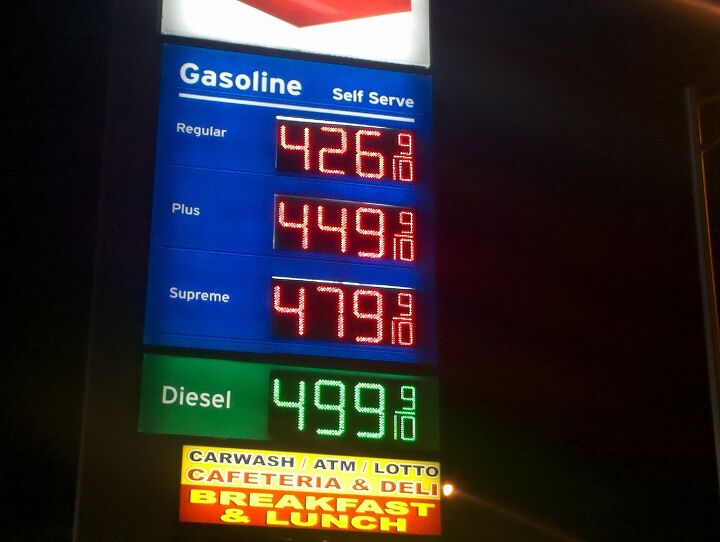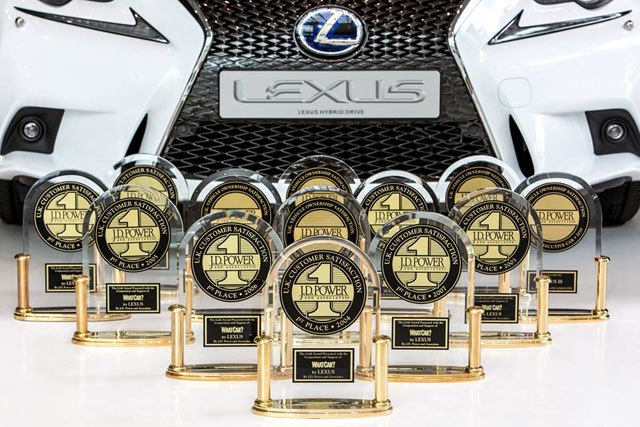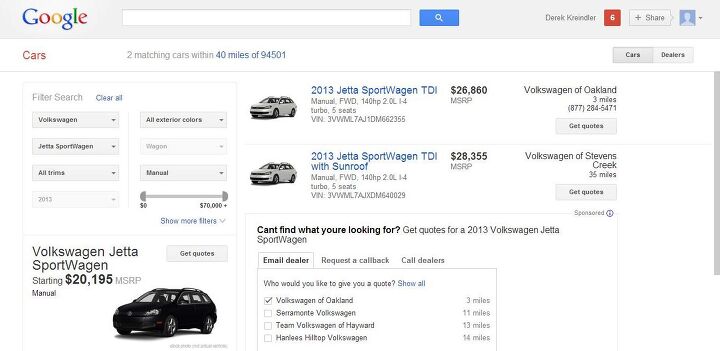#KBB
Report: Regular People Cannot Afford New Cars Anymore
The average monthly payment for a new car sold within the United States has reached a record $777, according to Kelley Blue Book’s parent Cox Automotive. That represents roughly one-sixth of the median household income and is about twice the price of what would have been considered average in 2019. How the hell has it managed to come to this?
Used Vehicle Prices Are Still Totally Insane
If you’re in the market for a new vehicle, you’ve likely noticed that some of the models you were interested in aren’t available in your preferred format and happen to be accompanied by sizable dealer markups. Well the used market, formerly a refuge for those seeking a bargain and a shrewd way of dodging the steepest period of deprecation, isn’t doing much better.
According to Black Book, the typical transaction price for used vehicles has gone up by over $500 in less than a month. Pegged at $27,000 in November, the average secondhand car now trades for over $27,500. As we’ve recently covered just how wild secondhand vehicle prices have become in 2021, we’ll keep this one relatively brief. But it must be said that automotive values are starting to seem totally disconnected from anything that could be considered rational as cars now have MSRPs a third higher than they were at the start of 2021.
Report: People Willing to Pay Stupid Prices for New Cars
While we’d like to get away from stories about everything becoming more expensive, everything actually is becoming more expensive and it looks like a healthy slice of the population is allegedly willing to go along with it. According to the latest data coming from Cox Automotive, roughly 40 percent of the U.S. population would purchase a vehicle at 12 percent above sticker. There’s always been a subset of shoppers who don’t know when they’re being taken but this represents a healthy share of the country.
It makes one wonder where these surveys were being conducted until Cox summarized the situation as the direct result of a populace beaten down by their environment. Apparently, people no longer expect to find good deals and have not yet reached the point where they’ll feel comfortable driving around in the same busted crate that’s seen them through the last decade as a way to save money.
Kelley Blue Book's 'Best Resale Value' Awards Goes Carless for 2019
Until subscription services irreparably modify what constitutes “owning” a car, resale value will continue being an important consideration when shopping for a new vehicle. Every dollar you can squeeze out of your vehicle down the road is one you don’t have to hand over at the dealership.
Every year, Kelly Blue Book compiles a list of models occupying the top spots of the resale value charts, and, every year, we’ve watched as passenger cars are gradually replaced by pickups, crossovers, and SUVs. Last year, the Subaru WRX was the only sedan to break into the top 10. However, this year’s KBB list is entirely devoid of cars.
Study Claims Car Shoppers Don't Care About Swelling Fuel Prices
Average fuel prices in the United States managed to triple between the years of 1999 and and 2012. While we’ve been fortunate enough to enjoy relatively low prices at the pump over the last few years, analysts predict the current spike will continue through the summer.
However, a recent study from Kelley Blue Book suggests most new-vehicle buyers don’t give a flip about it, with consumers claiming the price surge won’t influence their vehicle purchasing decisions in the slightest.
The assumption that the cost of gas will stabilize in the fall could play a factor for some, but many respondents say the price per gallon would have to reach $4 before they became rattled enough to consider swapping to a more economical vehicle.
Driving Aids Allow Motorists to Tune Out, NTSB Wants Automakers to Fix It
Driving aids are touted as next-level safety tech, but they’re also a bit of a double-edged sword. While accident avoidance technology can apply the brakes before you’ve even thought of it, mitigate your following distance, and keep your car in the appropriate lane, it also lulls you into a false sense of security.
Numerous members of the our staff have experienced this first hand, including yours truly. The incident usually plays out a few minutes after testing adaptive cruise control or lane assist. Things are progressing smoothly, then someone moves into your lane and the car goes into crisis mode — causing you to ruin your undergarments. You don’t even have to be caught off guard for it to be a jarring experience, and it’s not difficult to imagine an inexperienced, inattentive, or easily panicked driver making the situation much worse.
Lane keeping also has its foibles. Confusing road markings or snowy road conditions can really throw it for a loop. But the problem is its entire existence serves to allow motorists to take a more passive role while driving. So what happens when it fails to function properly? In ideal circumstances, you endure a moderate scare before taking more direct command of your vehicle. But, in a worst case scenario, you just went off road or collided with an object at highway speeds.
Attention, Cheapskates: Here Are the Most Affordable Cars to Own in Every Segment
There are few things sweeter in life than bragging to your friends and family about the good deal you just negotiated on a new car. They certainly won’t care, but the amount of self-satisfaction received from reminding yourself that you are a force to be reckoned with at the dealership is immeasurable.
Of course, the bargain in the driveway can turn into a money pit once you calculate all the costs associated with vehicle ownership. Fuel costs, financing, insurance, and depreciation can all add up — especially if you purchased the wrong model. So what’s a thrift-obsessed shopper to do, calculate the total cost of ownership on every model in every segment over a five-year period to determine which is the best value overall?
Don’t be ridiculous, someone has already done that.
QOTD: Do You Care About Automotive Awards?
Glossy magazines present multi-page spreads on their winners. Poorly funded websites present annual lists of their favorites. Other organizations that rate all sorts of consumer products give out actual, physical plaques and trophies to their winners.
Yes, we’re talking about automotive awards today. Everybody’s doing it, and with a bit of searching, one might even find a particular grouping of awards which suits their particular special interest.
But do you care?
Kelley Blue Book Names 2017 Image Award Winners; Subaru Takes Three, GMC Wins an Odd One
The importance of favorable perception is invaluable when it comes to sales. If a product or brand doesn’t inspire some sort of positive association, then it’s not likely to be around for longer.
Automotive brands are specifically interested in gaining recognition for their strengths. When you think of the most reliable or best-looking cars, one or two brands usually jump to the front of your mind — and the same can be said for the worst examples in the industry. Those companies are aware of their status and, on the off-chance they forget, certain outlets are only too happy to remind them.
Based on insights and data collected via Kelley Blue Book’s brand watch study, the automotive research company has established the victors of its Brand Image Awards for 2017. While most winners are about as surprising as a cold winter in Canada, a few recipients took some dissecting to make sense of.
Analysis: Google Cars Gets Ready To Retail Rumble
Google’s autonomous car program tends to get the lion’s share of attention when discussing the tech giant’s auto initiatives. But lurking in the background is a more immediate project that has the potential to finally “disrupt” (as Silicon Valley types are so fond of saying) online automotive sales.
Forecasters See Strong March Auto Sales
Despite rising gasoline prices, America’s newfound appetite for new cars continues. Both J.D. Power and Kelley Blue Book predict very strong auto sales for the month of March.
KBB Resale Values: Japanese Lead, Americans Gaining
Kelley Blue Book has released its annual resale value data, and according to the WSJ, Toyota, Honda and BMW remain the top brands in five-year residual value. Still, Toyota’s average residual value dropped from 42.7 percent to 38.8 percent, while Honda fell from 44.5 percent to 38 percent. Those drops mirror an industry-wide decline in residual values, which had hovered around 35 percent for some time, but have fallen to about 32.6 percent for 2010 models. But American brands have bucked that trend:
KBB estimates Ford’s 2010 models will keep 32.4% of their value after five years. That’s an improvement—for 2009, KBB put the residual value of Ford’s models at 31.7%. Likewise, GM’s 2010 five-year residual value is 31.3%, up from 29.5% a year earlier. Chrysler’s figures are 29.5% for 2010 models, compared with 29% for 2009 models.
KBB’s top ten models for five-year residual value after the jump.

























Recent Comments